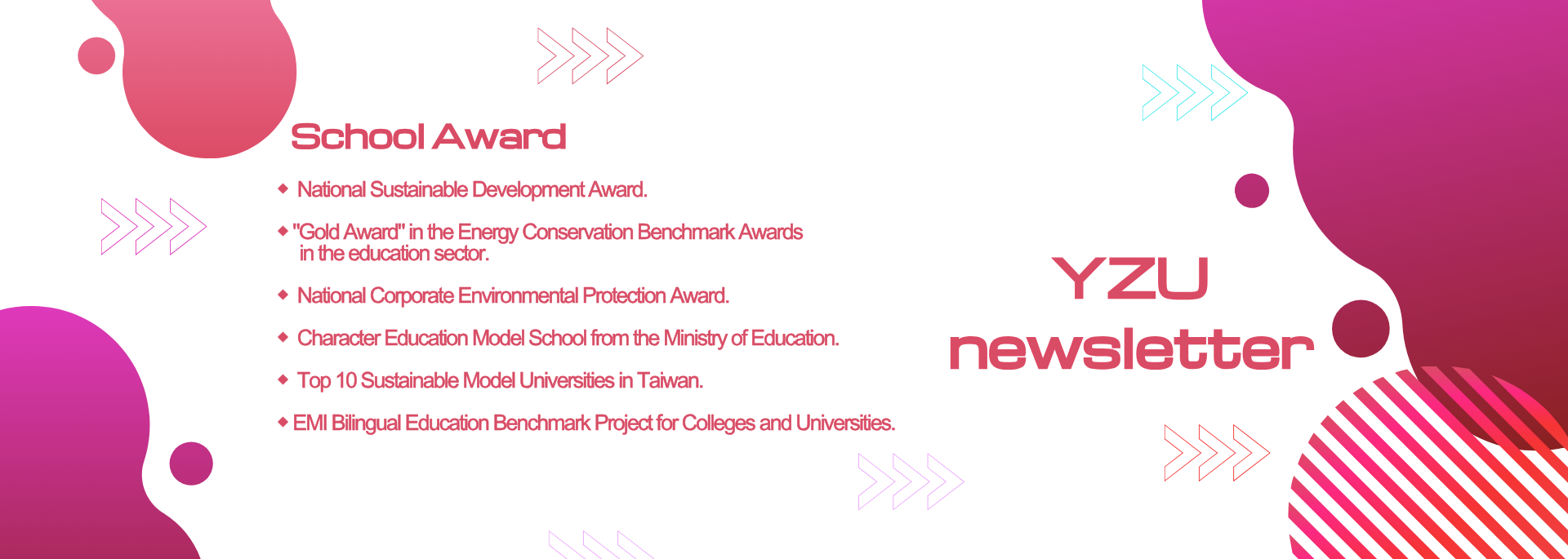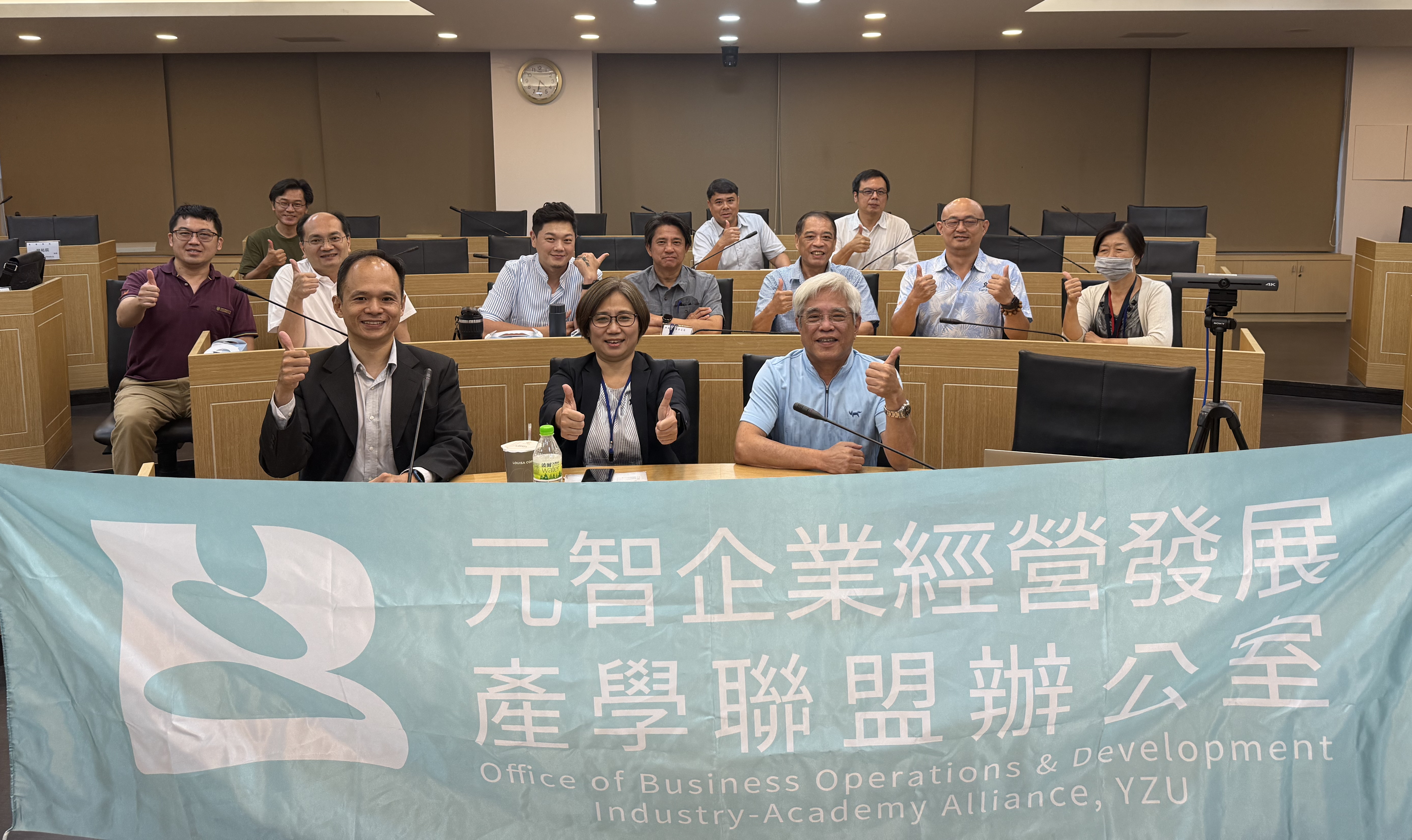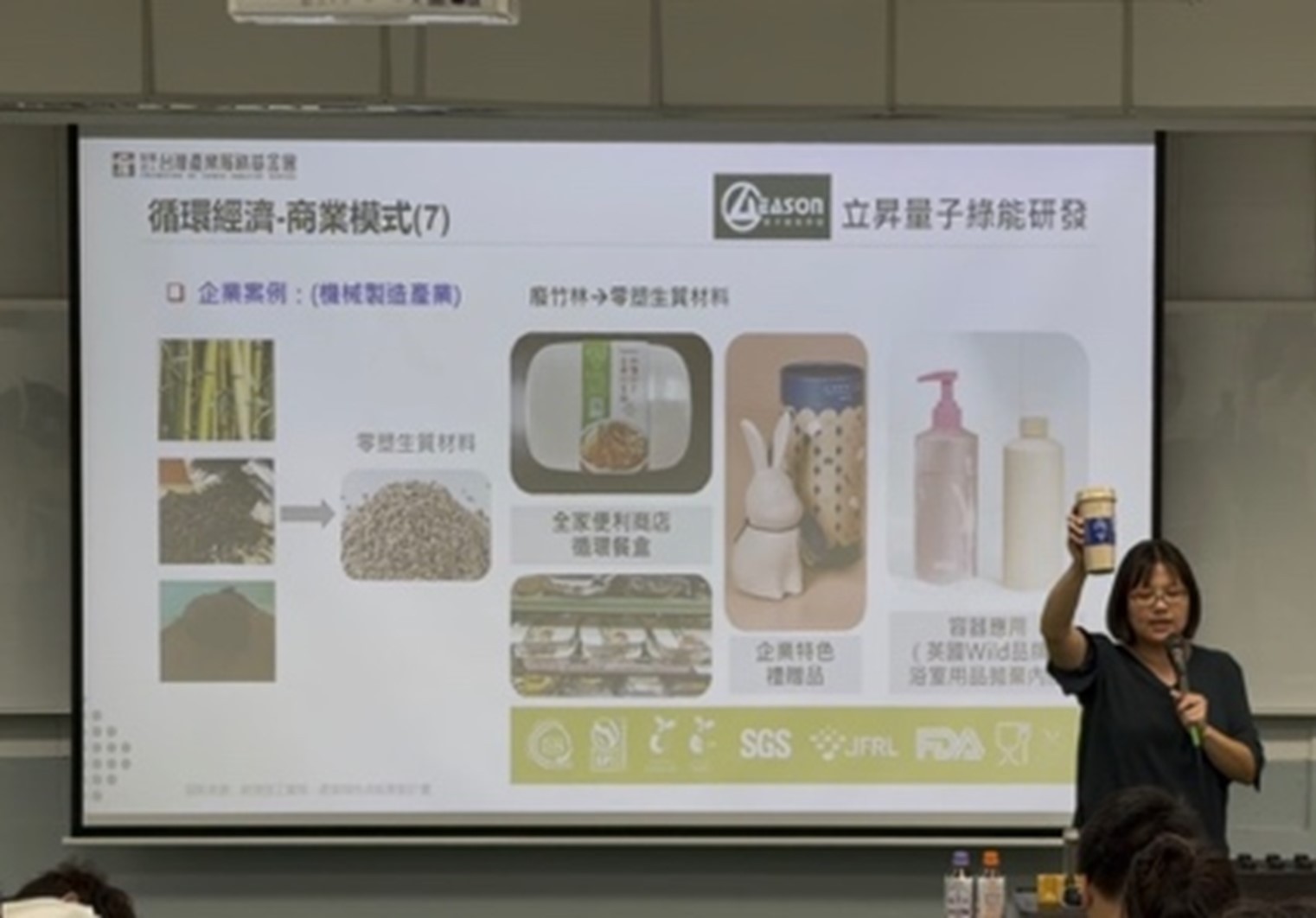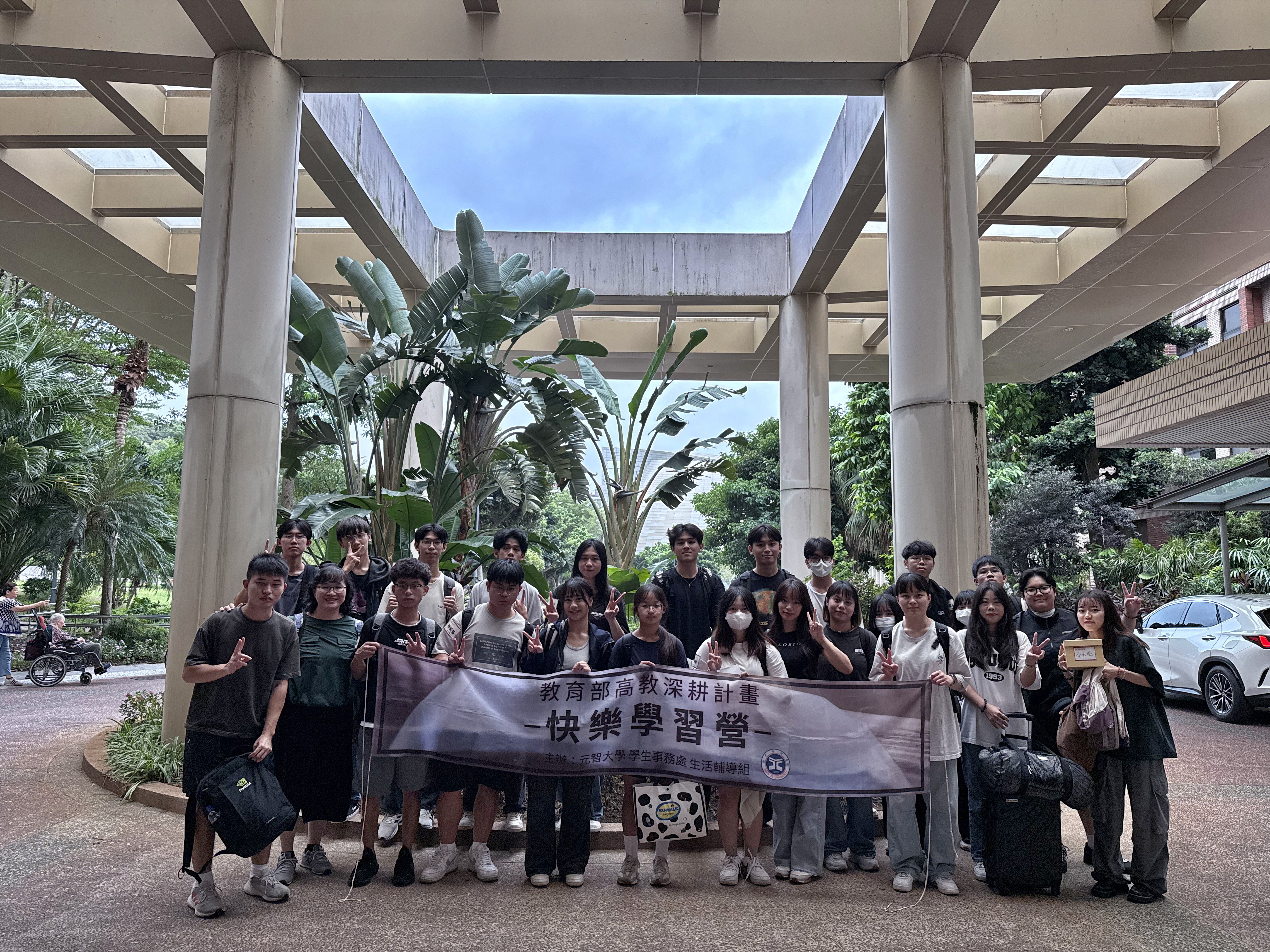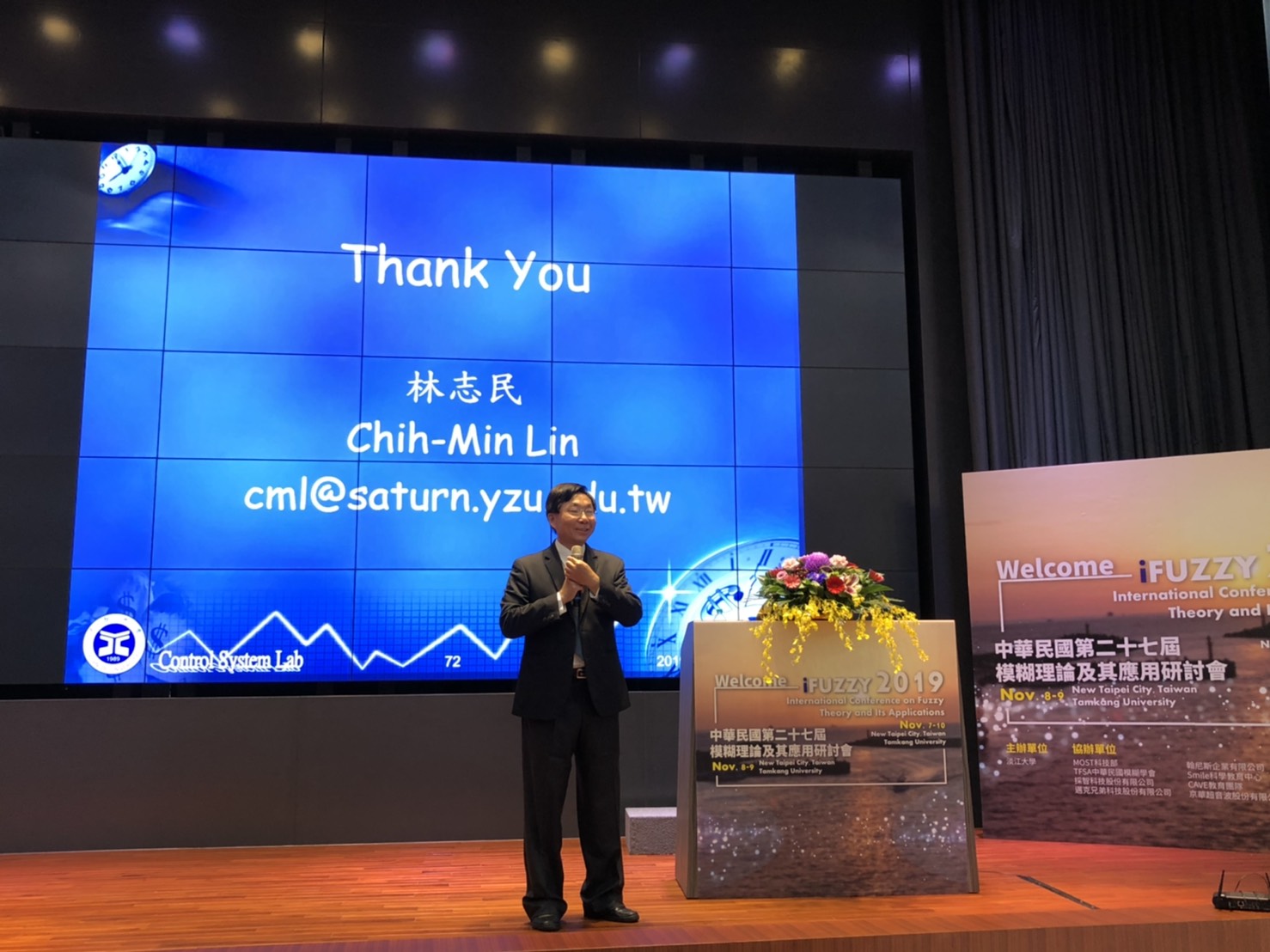To help enterprises navigate the trends of sustainability and digital transformation, the Office of the Industry-Academia Alliance for Business Development at Yuan Ze University held a special lecture titled “Dual Transformation: From ESG Net Zero to AI Smart Applications” on October 17, 2025.
The event featured Tzu-Hui Lu, CEO of InfoSmart Transformation Co., Ltd., and Kevin Chung, founder of Omniwise Digital, who shared insights from two perspectives—ESG net-zero strategies and practical AI implementation—to guide companies in building future competitiveness.
In her talk, “The Entrepreneur’s Perspective: Grasping ESG and Net Zero to Build the Underlying Logic of Future Competitiveness,” Tzu-Hui Lu pointed out that global enterprises had entered a new era of “No ESG, No Money.” From the EU’s CBAM carbon tariff and international supply chain decarbonization requirements to Taiwan’s carbon fee collection and audit regulations, ESG and net-zero initiatives have become essential for gaining market trust and investment. She emphasized that green and digital dual transformation had become a global consensus. Enterprises that internalized ESG and net-zero strategies early could not only reduce risks but also create low-carbon business opportunities, enhance brand value, and improve financing advantages.
Kevin Chung, in his presentation titled “Leveraging Small Strengths: A Practical AI Adoption Guide for Small Teams,” noted that AI development had moved from cloud computing into the era of generative AI, with reduced technological costs making adoption feasible even for small and medium-sized enterprises (SMEs). He stressed that the key to successful AI application lies in strategy and organizational culture. By adopting a modular implementation approach and a human-AI co-creation mindset, SMEs could automate processes, lower costs, and enhance decision-making efficiency and customer experience.
During the Q&A session, a company representative asked, “How can business owners without an IT background apply AI to SMEs?” Kevin Chung responded that SMEs should focus on their core expertise, and that AI implementation could be outsourced while management teams coordinated strategy, management, and application from the top down. This, he said, would help enterprises maximize synergy and turn technology into a true driver of competitiveness.
The lecture centered on how companies could find new opportunities amid the twin forces of sustainability (ESG) and artificial intelligence (AI). Drawing from practical experience, the two speakers guided participants through strategy, management, and technology implementation to understand the key connection between sustainability and intelligence.
Po-Chien Lee, Executive Director of Yuan Ze University’s Industry-Academia Alliance for Business Development, stated that the event aimed to promote “AI × ESG” dual transformation through industry-academia collaboration. He added that the university would continue to integrate academic and industrial partners to build learning and exchange platforms, helping enterprises enhance sustainability performance, implement intelligent systems, strengthen cybersecurity, and develop service-oriented strategies—jointly fostering smart competitiveness in the net-zero era.
 English
English  正體中文
正體中文 